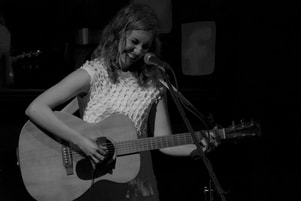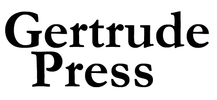|
Miguel is crying. It isn’t the first time.
“I can’t escape,” he moans. “The walls of the exam room are closing in on me, with their skeletal diagrams of foot bones and their informational posters about fungus. So I throw open the door, but the office hallway is full of these tan, male nurses in mint green scrubs, carrying metal trays with all different sizes of toenail clippers. One of them is guiding a barefoot grandmother into an orthotic fitting machine, and I try to scream, but there is nowhere to hide, no one to call, just me and my feet and the handsome nurse and his old lady friend and her feet and oh God oh God oh God.” A collective shudder runs through the room. We’ve all had this dream in one form or another—the podiatrist’s office. I haven’t been haunted by this particular night terror since my first year of AA meetings, but that doesn’t mean that I don’t feel beads of sweat forming at my temples and the fine hair on the back of my neck prickling into goosepimples. “And what did you do, Miguel, when you awoke from this dream?” Raymond, our group therapist, asks. “Did you call your sponsor?” Miguel isn’t with us, his sweet baby face pale and splotchy, his eyes transfixed by some night apparition that has followed him into our sanctuary circle of folding chairs, a demon only he can see. We all understand, though. We have our own phantoms hovering over our shoulders or expanding inside of our ill-fitting socks. “Nah, he didn’t,” I answer. I know this because I am Miguel’s sponsor. Mark and Miguel. M&M. The Best of Friends. That’s what the group named us two years ago when he joined Autopodimutilators Anonymous and I committed myself to guiding him through his recovery. The first time I took him out, a Saturday evening date at the wine and paint bar in SoHo, I showed up at his door with a pack of king-sized holiday M&Ms instead of flowers—Christmas candy. “Mark, I love green. And red,” Miguel told me, wide eyes becoming wet with gratitude. “They’re my two favorite colors.” “I know, Miguel.” I said. I didn’t, really. “That’s why I chose them.” Miguel’s current confession is the first I’m hearing of his relapse. Miguel hasn’t called me in weeks, and I’m secretly relieved to hear that it’s because he’s having a personal podal crisis and not because he’s not into me anymore. I guess you’re probably wondering if it’s against AA code for sponsors to be intimate with their sponsored parties. It technically is, which is why I haven’t been able to talk to anyone about the anguish I’ve been feeling, lying awake each night staring at my cellphone, waiting for a message from Miguel. To be honest, I’m not sure how much Autopodimutilators Anonymous has helped me. It’s a twelve-grab program, and I’m on grab eight: making reparations to all who my illness have harmed. It used to be a twelve-step program, but the ambulatory reference was so triggering to the intended clientele base of podophobes that the pilot program was a flop. Delving into the depths of the externalities of my unhealthy relationship with my feet has been a much longer process than I expected. I miss the days when my treatment was all mindfulness meditation and vision boards. |
The last time I saw him, Miguel had brought his newest vision board to our coffee date at Tim Hortons, after we’d spent the bleak December morning in Madam Tussauds. I used to find this kind of exposure therapy helpful, but now I just go for Miguel’s benefit. Every time we go, I get a rush from head to ankle when his fingers intertwine with mine, my touch emboldening him to lower his timid gaze to Lionel Messi’s cleat suspended in a game-winning kick.
“I can’t explain it, Mark,” Miguel said to me, steam rising from his paper cup, creating a drop of condensation on the tip of his pink nose that I wanted to lick off. “I feel like I’m in a really good place right now. Like, just look at my newest vision board. It’s showing ambition that my autopodophobia hasn’t let me feel in years.” Miguel’s vision board made my stomach flip the way that it often did when confronted with Miguel’s earnest stupidity. It simultaneously disgusted and entranced me. Miguel’s vision board was a collage of magazine cut-outs glued to red construction paper. Block letters spelling out “BELIEVE” were superimposed on a background of reptiles and roller derby girls. “What the hell is this?” I asked. “I think I want to travel Australia taming tetrapod vertebrates,” he said bashfully. I wondered if he, too, had spent the previous Thursday night watching a marathon of Crocodile Hunter re-runs. “That, or join a roller derby league.” “Miguel, honey,” I sighed, reaching across the table to place a reassuring hand on his wrist, “you can’t do either of those things. You would need feet.” His hopeful smile crumbled into the same expression of resigned disappointment that I’d seen when I explained to him, at various moments over the course of our relationship, that he could not be a door-to-door salesman, a grape-stomper, or an anklet model. These are universal human aspirations that, as autopodimutilators, our condition cruelly denies us. Three quarters of Miguel’s right foot were still intact at that point, a blessing and a curse. Miguel could do a great many things that I, having no flesh left below my ankles, could never do, such as engage in tibial rotation or wear a shoe. On the other hand, he still had part of a foot accompanying him everywhere he went, which is horrible. Today, in our AA meeting, Miguel isn’t wearing his one shoe. Instead, a white swath of gauze protrudes from the bottom of his right pant-leg, revealing the truth that he is too ashamed to say: he has again succumbed to the temptation of autopodimutilation, overcome by the fear of his own feet, and has sawed off what remained of the limb using, as we all do, a pizza slicer. Though no one is willing to say it aloud, because it goes against all the principles of recovery, there is a palpable sense of relief at there being three-quarters less of a foot in the room than there used to be. The only feet left belong to Raymond, who managed to successfully treat his disorder after removing only his pinky toes. Raymond thinks of himself as a very relatable therapist due to his personal knowledge of our condition, but, needless to say, we all distrust him because of his obvious conflict of interest in the ongoing battle between us and feet, possessing feet himself. “Mark, let’s hold space for Miguel to share his story,” Raymond says. “Miguel, what happened when you woke up? Did you call your sponsor?” |
Finally, Miguel looks up in my direction. He won’t meet my eyes.
“No,” he says, “I didn’t.” “Miguel, what happened when you woke up?” Raymond is a broken record. Miguel gestures at his gauze-swaddled stump. “I need you to say it,” Raymond says. “I… I don’t want to,” Miguel says. “I need you to,” Raymond says. “I can’t,” Miguel says. “I cut off…” Raymond prods. “I cut off…” Miguel echoes. “…my own…” Raymond prods. “…my own…” Miguel echoes. I tune out. As much as I like seeing Miguel’s childish chagrin, as much as it turns me on, Raymond’s behavior today feels particularly cruel. On the bleak wall facing me, Raymond has hung a print of Julia of Corsica, patron saint of foot pathologies. I should be asking her to grant Miguel strength in his battle, but instead I am daydreaming about the time that he and I spent a week in bed together watching The Muppets and eating matzo ball soup when he had the flu. The Muppets is a fantastic T.V. show because puppets are only filmed from the waist up. In fact, I believe puppets only exist from the waist up. When I tune back in, the group is reciting the closing prayer. I join. “God, grant me the serenity to accept the feet I do not have, the courage to face the feet that still exist, and the wisdom to know the difference.” Our group files up the stairs of the church basement and out into the January night. Raymond is the first out, obviously, since he is the best walker, and Miguel is the last, fumbling with his crutches and newfound lightness. I wait for him on the sidewalk below a glowing streetlamp. The city is so sinister at this hour, flocks of bundled bodies rushing by on their terrible appendages. Miguel hobbles up to me. His crutch slides on a small nugget of dog shit, and I catch him before he crashes to the concrete. I keep holding him, even when it is clear to both of us that he is safe. No harm will come to him. I whisper this into the balding patch on the crown of his head. “Sorry I didn’t call my sponsor,” he whispers back. “It’s OK, honey,” I say. “Sorry I cut off the rest of my…” he trails off. “It’s OK, honey,” I say. “Do you ever wish we could just be muppets?” he asks. I rest my chin atop Miguel’s head, squint my eyes so that I only see a blurry version of the upper half of the world around me. Through this lens, we could all be puppets, driven by only strings and hands, hands, hands. |

Leah Bishop is a queer poet and fiction writer, new to the literary scene. Her work received recognition in the 2017 Aonian Poetry Contest and the 2017 Southern Literary Festival Student Writers Competition. This fall, Leah’s poetry will be published in Lycan Valley Press’ anthology Untimely Frost—Dark Poetry Anthology and in Alternating Current Press’ online journal The Coil.
Leah recently graduated from Hendrix College with a B.A. in Political Economy. These days, you can find her in Tucson, AZ, exploring the intersection of faith, stories, and social justice.
Leah recently graduated from Hendrix College with a B.A. in Political Economy. These days, you can find her in Tucson, AZ, exploring the intersection of faith, stories, and social justice.
